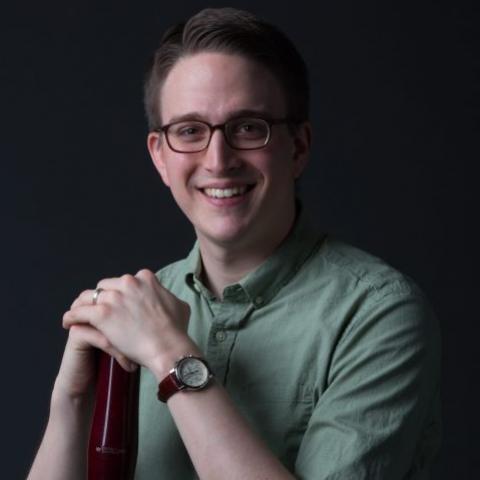DSO’s Land & Seascapes

Musical impressions of land and seascapes filled Copeland Hall Friday night as the Delaware Symphony Orchestra performed the second concert in its Classics Series at The Grand Opera House in Wilmington.
The concert was also the occasion for the presentation of the A.I. du Pont Composer’s Award to David Ludwig in recognition for his contribution to contemporary classical music. The 43-year-old Bucks County, Pa. native who teaches at Curtis, is the scion of a distinguished musical family that includes pianists Rudolf and Peter Serkin and violinist Adolph Busch. His teachers have included composers Jennifer Higdon, Ned Rorem, John Corigliano and Richard Danielpour, among others.
The concert opened with a performance of La Mer, Debussy’s rich and masterful depiction of the ocean. The work unfolds in three movement or “sketches” — one calm, one wavy, one stormy — with a kaleidoscope of colors that challenges every corner of the orchestra.
The DSO came well-prepared for the challenge. Music Director David Amado and the musicians effectively balanced the sunnier effects with the more ominous elements in Debussy’s sprawling canvass. Special effects provided by two harps and an array of percussion complemented excellent work from the winds, brass, robust strings, cellos and fine solo work from associate concertmaster Luigi Mazzocchi.
Pictures from the Floating World pays homage to Debussy with titles taken from his water pieces — The Sunken Cathedral, In a Boat, Reflections on the Water — but the music is entirely original. Ludwig stated that it was not his intention to transcribe Debussy but rather to use his “clay.” The older composer’s influences are evident in the harmonies and splashes of orchestral color that permeate the work.
Ludwig’s writing for the bassoon is both exquisite and technically demanding. The piece was composed for principal bassoon Daniel Matsukawa of the Philadelphia Orchestra which commissioned and premiered it in 2013. Matsukawa wanted a piece that would showcase the lyrical side of the instrument that’s become the buffoon of the orchestra.
Soloist for this performance was William Short, co-principal bassoon of the Metropolitan Opera Orchestra. Tonight was a homecoming of sorts for Short who served as DSO principal bassoon from 2012-2014. Short also studied with both Matsukawa and Ludwig while at Curtis and has previously performed the concerto as well.
Short turned in a totally virtuosic performance, exhibiting superb breath control in the long phrases and note perfect accuracy in the staccato passages. Particularly effective was the intimate interweaving with cellists Philo Lee and Naomi Gray in the chamber-like interludes that separate the work’s three main movements.
Rounding out the program was Ferde Grofe’s Grand Canyon Suite. One wonders how many audience members have heard this work performed live, as it has — undeservedly — fallen out of fashion on the concert circuit.
This was a marvelous performance, full of character yet never overblown or vulgar. The first movement, Sunrise opened with exquisitely played French horn, oboe, flute and English horn solos. Chimes sparkled and hammered timpani strokes gave the climax depth and power. Wonderful oboe octave leaps with woodblock accompaniment rendered a delightfully nostalgic On the Trail as did the celesta solo that preceded the lively coda. The entire performance sparkled in color, ensemble and continuity.




